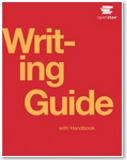Resentment is like taking poison and waiting for the other person to die.
- Susan Cheever |
Writing and Publishing
 This page is being built for those of you who are learning to write, those who enjoy the process and/or therapeutic value of writing, and even for the folks who write to have their work published. There’s something for everyone; from the step-by-step writing tips, to publishing books that will be printed or downloaded…including music books!
This page is being built for those of you who are learning to write, those who enjoy the process and/or therapeutic value of writing, and even for the folks who write to have their work published. There’s something for everyone; from the step-by-step writing tips, to publishing books that will be printed or downloaded…including music books!
Check out the 750+ page Writing Guide from OPEN STAX! ⇒ Their publications are peer-reviewed, openly licensed and 100% free.
I shared 4 writing outlets with the newsletter subscribers in March of 2022. Feel free to print the document below and send it to someone who has a gift that they are ready to share!
American Prison Writing Archive
The mission of the APWA is to replace speculation on and misrepresentation of prisons, imprisoned people, and prison workers with first-person witness by those who live and work on the receiving end of American criminal justice. As of 2.18.20 they have 2323 titles in English and 17 titles in Spanish. The books, papers and poems are grouped by Titles (A-Z), Authors, Author Attributes, Languages, Prisons and States. Search information is on the left side of the page.
 To submit your essay, book or poem, request their permissions questionnaire here:
To submit your essay, book or poem, request their permissions questionnaire here:
The American Prison Writing Archive
Johns Hopkins University
3400 N. Charles St.
Baltimore, MD 21218
Information about the prison system is limited, and policy makers and voters are shaping the lives of incarcerated people without their input. We’re bringing transparency to the world of mass incarceration from the inside and training incarcerated writers to be journalists, so they can participate in the dialogue about criminal justice reform.
Special Project:
What Is It Like to Be You?
One of the goals of Prison Journalism Project is to de-stigmatize the incarceration experience by introducing people who are untouched by incarceration to perspectives and stories from behind walls. We want everyone to see people who are incarcerated for who they genuinely are and connect with them as fellow humans.
In this project, we invite people to take a piece of blank paper and anonymously answer the question: WHAT IS IT LIKE TO BE YOU?
You can answer the question however you want as long as it’s honest and true.
What we hope to show is that all of us — whether we’re incarcerated or not — are just human. We make mistakes, we fall in love, we make friends, we care about our families. We also hope that the project will give readers emotional insight into the realities of incarceration, and that the submissions will reveal deep truths without the pressure of having to put your name on it.
PJP Special Projects
3501 Southport Ave., #204
Chicago, IL 60657
SO YOU CAN WRITE PUBLICATIONS
920-821-3006 [email protected]
So You Can Write Publications is a publishing company designed to assist writers with their writing works. This company has a reputation built off good faith and character, we believe in making our clients feel at home during the publishing process. It is our greatest duty to provide ongoing services that meet the needs to each writer’s individuality. Helping our community build vision by understanding the talent that’s within. Your dreams are reachable!” (Formerly-Incarcerated-Person Owned)
About the owner, Kendrick Watkins:
“When I was released from prison in 2010 I had a vision and goals: to be free and become successful. Just because I have a prison record doesn’t mean my life is over. Don’t be afraid to challenge yourself and remove the people, places, and things that do not bring encouragement to the new you! I started writing because it brought peace to my world. I was hurting from childhood experiences, but I begin to heal myself mentally and emotionally through my writing. I encourage writers to write because it heals the very soul you must take care of.”
Strategy for Writing While in Prison
Shared by an incarcerated author
I have often heard people in prison say that they want to write a book. The number of people who have accomplished this goal still remains relatively small and I believe that this may be because they lack a strategy for effective book writing. The following is the strategy that I use for writing my books while incarcerated.
- Think Big, Write Small – Most people look at a book’s length (usually around 300 pages) and think that they could never write that many pages. But look at it from another perspective: Most people can write one page (about 250 words). So concentrate on writing one page per day. At the end of the year you will have 365 pages.
- Just Do It – Don’t stop or lose time worrying about grammar, punctuation, etc. Just write as ideas come.
- This is called brainstorming. After a while you will have enough material to complete a chapter or maybe even the whole book.
- Know Thy Subject – Thoroughly research your topic. When I was writing my urban fiction book (“hood novel”), I did not know much about the “drug game” so I spoke to people who had been extensively involved so I could provide an authentic experience for my readers. Even if you have extensive knowledge about the subject, research will allow you to learn other perspectives from a wide range of people. This makes writing easier because those perspectives can be incorporated.
- Make the Time – Set aside a specific time or range of time each day to concentrate on writing (whether brainstorming, researching, and/or writing). I find that having a set schedule keeps me focused and motivated. Generally, my writing time is in the early morning after I complete my daily workout (running the track helps me come up with ideas).
- Read, Read, and Read Some More – The more you read, the better your writing will become. Read a variety of material (books, magazines, newspapers, etc.) on a wide range of subjects, to increase your vocabulary. Learn to identify and emulate the writing style of your favorite author(s). As a side benefit, you can spend many enjoyable hours lost in a good book.
Writing Tips
Mr. Riggs has generously donated these writing tips. You can check out his many publications on our Incarcerated and Formerly Incarcerated Authors page! and also online.
#1 JUST DO SOMETHING
This is the first and most important thing you’ll ever learn about writing.
#2 GET IT OUT OF YOUR SYSTEM
Doing it now is how I clear my thoughts to make room for the next things on my list.
#3 DON’T WRITE WHERE YOU EAT,
Even in the most simple environments you should define some sort of difference between the two, to kick start your mind’s creative flow. When I wrote this, I lived in a concrete box that was eight feet wide and ten feet long, and every morning I got dressed, I drank my coffee, and brushed my teeth; before I sat at my desk to write. I take my seat at seven o’clock sharp, every morning. Take a moment to define a difference, it will help you get your mind started.
#4 KNOW WHAT YOU ARE KNOWN FOR
Your brand is what you are known for and more importantly how you make people feel. It’s important to identify your brand and to keep it positive and consistent. In simple terms your brand is the emotional effect that you have on the hearts of others-it’s what you are known for.
#5 BE INVESTED IN WHAT’S MOST IMPORTANT-
YOU. Writing often becomes an individual’s work of passion. And as with any passion, it becomes a love only when it is shared. Invest in yourself with some promotion.
#6 DO UNTO OTHERS…
NO! Do for others BETTER than you would do for yourself. Bottom line is, if writers are stingy with their support and kindness then they can expect nothing different from those around them. It’s never, too, late to adopt a win-win philosophy.
#7 KEEP YOUR GOALS IN CLEAR VIEW
Don’t let anyone talk you out of loving the life of a writer. Writing is a skill that is acquired by experience and study. And you are already an artist if you practice writing as an imaginative art.
# 8 MANAGE YOUR DISTRACTIONS
Distractions are probably one of the top ten killers of a writers productivity. Take care of unexpected problems and responsibilities before you sit down to write.
#9 GOOD WRITERS KEEP A JOURNAL
A writer’s journal should be within arms reach first thing in the morning to record thoughts, ideas and more.
#10 BE A POSITIVE INFLUENCE
Writers have a responsibility to the words they share because they influence on the world. I strongly advise that writers keep their words direct and positive.
#11 OUTLINE! OUTLINE! OUTLINE!
Your junior high school English teacher was right. I outline not only my book ideas, but long chapters as well.
#12 STAY THE COURSE
Take the good with the bad and stick with it. My personal motto is, “Just make it happen.”
#13 STAYING PRODUCTIVE
Writing is much more than a job, it’s a passion. But just as with any other passion, the desire to write can easily fade. When that happens your productivity can start to suffer. This problem is overcome by writing the parts you’re excited about first. But remember to follow your outline!
#14 A GOOD SCHEDULE
I highly recommend that writers maintain a good schedule.This goes for blog posts, emails, and returning phone calls. When people see they can depend on what you say, they are more inclined to follow your work. If you want to be a successful writer, keep a good schedule.
#15 KEEP A GOOD BACKLIST
A backlist is a collection of what may one day be great ideas that are worth considering, but are now are on the ‘back’ burner. A backlist is similar to keeping a journal..
#16 FOREVER BE A STUDENT
If I’ve never suggested it before, please allow me to suggest it now–continue to learn about the craft of writing. Writers must continually advance their understanding of the world around them.
“If at 50, you view the world the same as you did when you were 20, you have wasted 30 years of your life.” – Muhammad Ali
#17 WHAT’S IN A NAME?
Never use similar or identical names for two different characters. Get a book of names to make life a little easier.
#18 THE DEVIL IS IN THE DETAILS
It’s hard to keep details in order. I keep my thoughts on track by summarizing my chapters. Summarizing the chapters is a lot like a little book report on each chapter. When I forget details, I can refer to my chapter summaries for guidance.
– KELLY PATRICK RIGGS –
.
.



